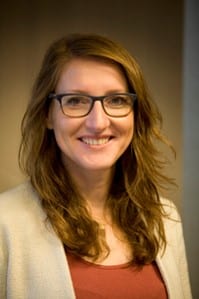As the Dutch national infrastructure for Social Sciences, ODISSEI aims to support social scientists in a variety of ways. It can be hard to optimally navigate all the options that are available to (aspiring) computational social scientists. Therefore ODISSEI’s Scientific Manager, dr. Kasia Karpinska, is available for consultation for those who want to make use of ODISSEI facilities.

‘As Scientific Manager, I try to bridge the gap between the infrastructure and its users. We aim to make the infrastructure accessible through grants, discounts and computational support, but are also continuously asking ourselves how we can further improve our facilities: does our infrastructure serve our users well? And how can we improve the procedures to access data or compute power?’ By monitoring the usage of the facilities, and keeping regular contact with partner organisations such as SURF and CBS, Karpinska assesses where projects can be further assisted. ‘We aim to be a well oiled machine with which users can efficiently access and use our facilities’.
Karpinska has received her PhD at the Utrecht School of Economics, worked as a postdoc at Erasmus School of Social and Behavioural Sciences in Rotterdam and held a research position at the SCP. Her research and teaching focused on issues related to the labour market, migration and family relations, and social policy. She was also responsible for a large-scale data collection among migrants in the Netherlands. With her extensive experience as a social scientist, she is excited that she is now involved in improving research processes: ‘What I like about this job is that I can see people grow and expand the boundaries of their research. I love to see how our discipline can be innovated by using new tools, different kinds of data, and developing new connections. When I was conducting my own PhD research, this was in a very focused research area, and it is wonderful to learn and explore now, through my work at ODISSEI, how much more is possible in the field of computational social sciences, and to find new ways to facilitate this’.
In the two years that she has been working for ODISSEI, she aimed to make its facilities more accessible to a wide range of scholars. This included a lot of work behind the scenes, such as administering ODISSEI’s Microdata Access Grant and the LISS Panel Grant calls, and coordinating the discounts that can be claimed for these datasets by people working at ODISSEI member organisations. She has helped scientists who want to make use of the ODISSEI Secure Supercomputer (OSSC) find their way, and is involved in the development of the ODISSEI Social Data Science team (SoDa) that offers computational support to social scientists.
‘I aim to direct scholars who potentially could benefit from SoDa’s assistance to the team, by referring them to their monthly Data Drop-ins, or connecting them to members of the team directly. I regularly talk to researchers to ask them how we could help, and we offer grant preparation support to those considering applying to our calls. Furthermore, people who are developing a proposal for a big grant, such as those of NWO and ERC, can contact us to see how ODISSEI can help elevate their proposal’.
Now that the foundations for ODISSEI’s Scientific Management are established, Karpinska hopes to expand her contacts with researchers. ‘I want to reach more people so they can find out how ODISSEI can benefit their research. We have a lot of potential users who do not know what we offer yet. But I also want to hear from researchers how we can further improve our facilities. We continue to develop ODISSEI and for that it is imperative that we continue to assess what benefits researchers most’.
Relevant links
- Contact Kasia Karpinska
- Request an ODISSEI presentation
- SoDa
- ODISSEI Grant Support